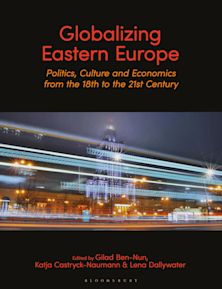- Home
- ACADEMIC
- Politics & International Relations
- European Politics
- The Formation of Coalitions in the European Union
The Formation of Coalitions in the European Union
You must sign in to add this item to your wishlist. Please sign in or create an account
Description
This book investigates why European associations form interest coalitions, which strategies these coalitions pursue to influence the EU institutions, and how persistent they are over time.
In this context, questions concerning the transparency of European decision-making are approached. The field of European energy policy serves as empirical background, providing a valuable insight into a little researched area of European politics.
Table of Contents
List of abbreviations
Chapter 1. Introduction
1.1 The increasing significance of European energy policy
1.2 The theoretical contribution of this work
1.3 The methods applied in the empirical research
1.4 Outline of this work
Chapter 2. Recent developments in selected areas of European energy policy
2.1 The liberalization of the European energy market
2.2 The introduction of the Kyoto Protocol and the EU Emissions Trading Scheme (EU ETS)
2.3 The promotion of energy efficiency
2.4 The promotion of the use of renewable energy sources
2.5 Additional measures to ensure energy supply security
2.6 Conclusions
Chapter 3. The current state of research on interest group politics and related fields
3.1 Periods of research on the role of interest groups in the policy process
3.2 Literature on multi-level and network governance
3.3 Theories on coalition-formation
3.4 Approaches to collective action and social movements
3.5 The role of institutions in the policy process
3.6 Literature on actors' strategies to influence political decision-making
3.7 Studies on the determinants of the access and influence of interest groups 100
Chapter 4. Research design and case studies
4.1 Research design
4.1.1 The benefits of process-tracing case studies
4.1.2 Case selection
4.1.3 Variables and hypotheses derived from the theoretical background
4.1.4 Data gathering tools: interviews and document analysis
4.2 Case studies
4.2.1 The policy process leading to the third liberalization package
4.2.2 Interests and strategies regarding the inclusion of aviation in the EU ETS
4.2.3 Developments related to the directive on the energy performance of buildings
4.2.4 Coalition-formation concerning the role of biofuels in EU legislation
4.2.5 The influence of coalitions on the receptiveness of the European institutions
Chapter 5. Empirical results
Chapter 6. Conclusions
Literature
Chapter 1. Introduction
1.1 The increasing significance of European energy policy
1.2 The theoretical contribution of this work
1.3 The methods applied in the empirical research
1.4 Outline of this work
Chapter 2. Recent developments in selected areas of European energy policy
2.1 The liberalization of the European energy market
2.2 The introduction of the Kyoto Protocol and the EU Emissions Trading Scheme (EU ETS)
2.3 The promotion of energy efficiency
2.4 The promotion of the use of renewable energy sources
2.5 Additional measures to ensure energy supply security
2.6 Conclusions
Chapter 3. The current state of research on interest group politics and related fields
3.1 Periods of research on the role of interest groups in the policy process
3.2 Literature on multi-level and network governance
3.3 Theories on coalition-formation
3.4 Approaches to collective action and social movements
3.5 The role of institutions in the policy process
3.6 Literature on actors' strategies to influence political decision-making
3.7 Studies on the determinants of the access and influence of interest groups 100
Chapter 4. Research design and case studies
4.1 Research design
4.1.1 The benefits of process-tracing case studies
4.1.2 Case selection
4.1.3 Variables and hypotheses derived from the theoretical background
4.1.4 Data gathering tools: interviews and document analysis
4.2 Case studies
4.2.1 The policy process leading to the third liberalization package
4.2.2 Interests and strategies regarding the inclusion of aviation in the EU ETS
4.2.3 Developments related to the directive on the energy performance of buildings
4.2.4 Coalition-formation concerning the role of biofuels in EU legislation
4.2.5 The influence of coalitions on the receptiveness of the European institutions
Chapter 5. Empirical results
Chapter 6. Conclusions
Literature
Product details
| Published | 26 Mar 2015 |
|---|---|
| Format | Ebook (PDF) |
| Edition | 1st |
| Extent | 208 |
| ISBN | 9781474224765 |
| Imprint | Nomos/Bloomsbury |
| Series | Studies on the European Union |
| Publisher | Bloomsbury Publishing |



































